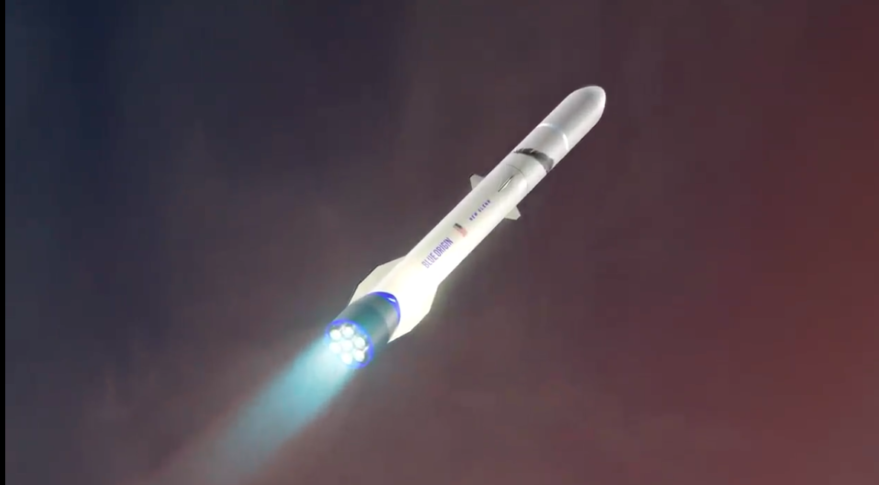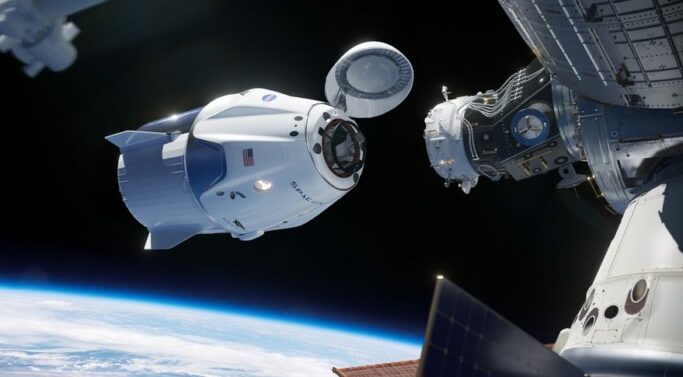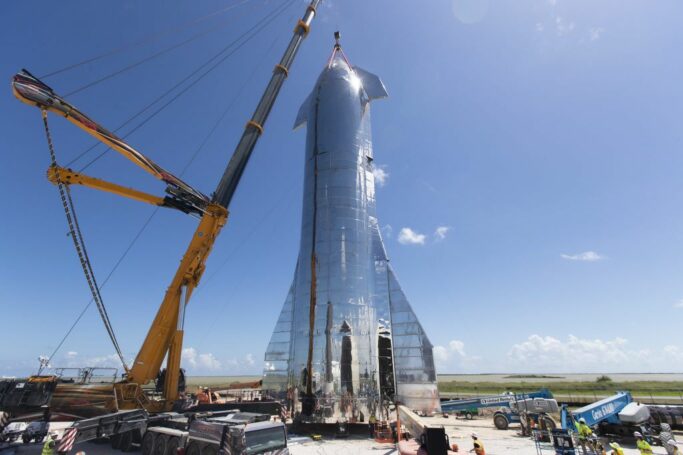
WASHINGTON — Blue Origin filed a protest with the U.S. Government Accountability Office on Monday challenging the Air Force’s plan to select two providers in the next procurement of launch services under the National Security Space Launch program.
Blue Origin, a rocket manufacturer and suborbital spaceflight company founded by Jeff Bezos, filed what is known as a “pre-award” protest with the GAO, arguing that the rules set by the Air Force do not allow for a fair and open competition.
“The Air Force is pursuing a flawed acquisition strategy for the National Security Space Launch program,” states a Blue Origin fact sheet that outlines the reasons for the protest.
The Air Force intends to select two winners for the National Security Space Launch Phase 2 Launch Service Procurement in 2020 to split 60/40 all national security missions from 2022 to 2026. Four companies — United Launch Alliance, Blue Origin, SpaceX and Northrop Grumman are expected to compete. Proposals were due Aug. 12, the same day Blue Origin filed the protest. According to the fact sheet, the company is pursuing this action to “ensure the terms of the Air Force Phase 2 Launch Service Procurement Request for Proposal clearly promote full and fair competition.”
The RFP the Air Force released May 3 “includes evaluation criteria that are ambiguous and fail to comply with federal procurement statutes and regulations. This subjectivity of the criteria makes it impossible to accurately respond to the RFP,” the fact sheet states.
A redacted copy of the complaint was obtained by SpaceNews. According to the complaint, the Phase 2 RFP:
- Contains unclear and ambiguous selection criteria. The Air Force laid out a list of weighting factors, and it will mix and match bidders’ offerings and pick two. The Air Force says it will select any combination of those providers that provide best value. Blue Origin argues that there is no clarity on what best value is, and claims that many of the government’s technical requirements are too vague to accurately price.
- Discriminates against new competitors by asking bidders to offer a backup launch vehicle. Blue Origin argues that provision favors incumbents as new entrant companies would not have a backup option. Blue Origin is developing the New Glenn heavy-lift rocket for the commercial and governments markets.
- Unnecessarily restricts competition by awarding exclusive five-year contracts to only two providers. The company contends this will perpetuate a market duopoly in national security space launch, causing higher launch prices and a missed opportunity to capitalize on industry innovation.
A source with knowledge of the protest said Blue Origin’s complaint echoes concerns the company has communicated publicly over several months about the LSP being stacked in favor of incumbent launch providers and against new entrant players that are developing rockets for commercial and government missions. The complaint “seeks clarification on the same points Blue Origin repeatedly raised with the Air Force in written comments and face to face meetings,” the source said. Once it was clear that the Air Force would not modify the RFP in response, the next step for Blue Origin was to turn to the GAO.
The central issue in the protest is the Air Force’s plan to narrow the field to two providers to fly all NSSL mission over a five-year period. Blue Origin is making a case that this restricts competition over a longer period than the 2022-2026 Phase 2 contract. Once the Air Force makes a selection in 2020, the two companies that don’t win would no longer be eligible to receive funds under the Launch Service Agreement that the Air Force awarded in 2018 to Blue Origin, United Launch Alliance and Northrop Grumman to help pay for rocket development and infrastructure. By cutting off funds to companies that don’t win a Phase 2 contract, the Air Force is undermining the future ability to compete, Blue Origin has argued.
Air Force and DoD leaders have not been swayed by these arguments. They insist that the strategy for the Phase 2 competition has been carefully thought out and planned over the past four years, and that two providers is the right number. The Air Force argues that increasing the number of providers in Phase 2 increases cost for all missions because each provider would get fewer launch contracts. Air Force Col. Robert Bongiovi, head of the Air Force Space and Missile Systems Center Launch Enterprise told SpaceNews in June that the Air Force favor more competition in the market, “but you can overdo that. … We absolutely agree we need to sustain competition. The way to do that is with the investment line focused on Phase 3,” he said. If the commercial market can sustain three or more providers, they would be have an opportunity to win Phase 3. And if there’s only enough commercial work to keep two providers afloat that would be an “OK outcome,” said Bongiovi, “because we don’t want to be in a position where we’re subsidizing industry”
Posted on August 12, 2019 in Space Travel in 2019



